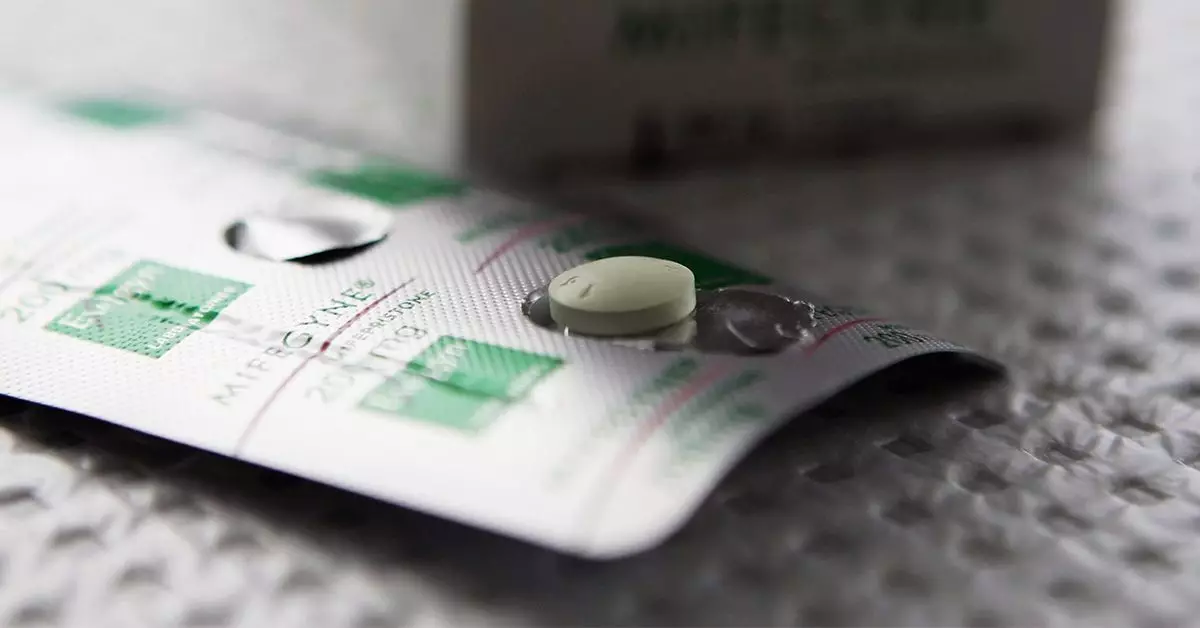Abortion remains a contentious topic in contemporary society, yet it is crucial to understand the options available for those facing an unplanned pregnancy. One popular method for ending an early pregnancy is the abortion pill, also referred to as a medication abortion. This non-surgical alternative offers individuals the ability to manage their reproductive health discreetly and effectively. This article delves into the mechanisms, methods, and implications surrounding the abortion pill to provide a thorough understanding for readers.
The abortion pill regimen typically comprises two medications: mifepristone and misoprostol. These drugs function together to terminate a pregnancy, with mifepristone blocking the hormone progesterone, vital for maintaining pregnancy. By inhibiting progesterone’s effects, the uterine lining begins to shed. Following this initial step, misoprostol is administered to induce uterine contractions and facilitate the expulsion of pregnancy tissue. The entire process allows individuals to end a pregnancy without surgical intervention, making it a favored choice for many.
Upon deciding to utilize the abortion pill, the individual usually first consults a healthcare provider who will administer mifepristone. The second medication, misoprostol, may be recommended immediately or a few days later, depending on medical guidance. Misoprostol is absorbed either sublingually or vaginally, and within hours, it typically induces cramping and bleeding—symptoms that signal the abortion’s effectiveness.
The intensity of the cramping and bleeding can vary significantly among individuals. For most, the experience resembles a heavy menstrual period, although some may pass blood clots or tissue. The timing for when these symptoms occur can also differ, with many experiencing significant bleeding within the first six hours post-misoprostol.
For individuals who have taken the abortion pill, recognizing the signs of a successful abortion is essential. Typical indicators include visceral cramping and bleeding. However, the amount of bleeding can vary, and not experiencing adequate bleeding within 24 hours may necessitate contacting a healthcare professional. Follow-up appointments, often involving an ultrasound or blood tests, help confirm that the pregnancy has been effectively terminated. Home pregnancy tests may be used to ascertain the outcome, but due to hormone levels taking time to reduce, conclusive results may not be immediate.
Following the initial medicinal abortion, it is normal for individuals to continue experiencing light spotting for weeks. As the body adjusts and recovers, most individuals find their symptoms gradually diminish over time.
While the abortion pill is generally safe, individuals may experience various side effects, including nausea, vomiting, diarrhea, and fatigue. Pain relievers and anti-nausea medications are often recommended to help manage discomfort. Importantly, the emotional and psychological impact of a medication abortion can vary widely; some individuals may feel relief, while others might experience feelings of sadness or anxiety. Thus, having supportive individuals nearby during this time can be beneficial.
Though medication abortion is highly effective—96.4% success in self-managed cases according to a 2022 population study—it is crucial to acknowledge that effectiveness diminishes with gestational age. Several factors, such as the correct administration of medication and timing between doses, can also influence the success rate.
The abortion pill represents a vital method for terminating an early pregnancy without surgical intervention. Its dual-drug approach, combined with the potential for self-management, empowers individuals to make autonomous decisions regarding their reproductive health. As societal dialogues around abortion continue to evolve, it is essential to rely on accurate medical information and understanding.
Healthcare providers play a key role in educating patients about the process, managing their expectations, and offering assistance during follow-up care. For those considering this option, it is important to seek medical guidance to navigate the associated medical, emotional, and logistical considerations effectively. Ultimately, the abortion pill remains a safe and effective alternative for many, reaffirming the need for comprehensive reproductive healthcare access amidst ongoing discussions about abortion rights and options.

